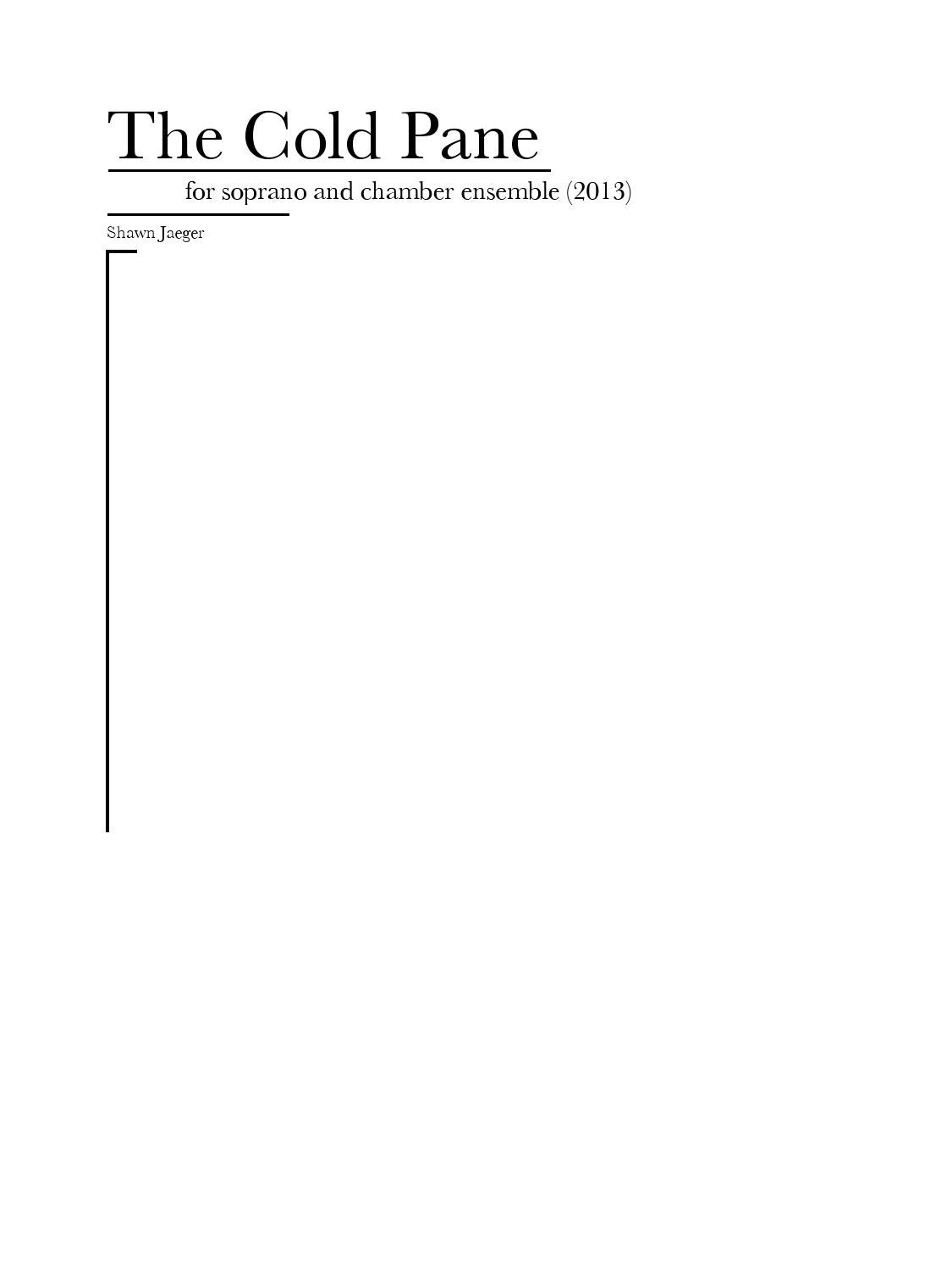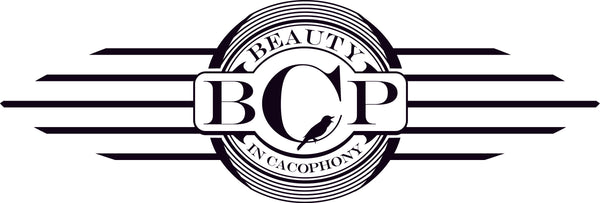BCP Music
Shawn Jaeger - The Cold Pane (Score Only)
Shawn Jaeger - The Cold Pane (Score Only)
Couldn't load pickup availability
Parts sets are available for purchase directly from the composer. Please email info@bcpmusic.com with the subject "The Cold Pane" to have your request for parts forwarded to the composer. Proceed to checkout if you would like to purchase a study score.
The Cold Pane is about the opposition between the natural, external world and the human, internal world of emotions, and how these two worlds can be at odds. It’s also about life, death, grief, and the seasons. The cycle explores how we seek meaning in the events of the natural world, and it questions whether the meaning we find there is actually present, or something we impose in our desire to find meaning there.
The Cold Pane sets five poems by the esteemed Kentucky author, farmer, activist, and scholar Wendell Berry. The cycle alternates between poems that describe the natural world, and, particularly, the seasons, and poems that describe the human, emotional world of grief. This opposition between external and internal worlds carries with it several other related oppositions—cyclical versus linear time, light versus darkness, life versus death, and objectivity versus subjectivity. In order to reflect these oppositions, I composed the songs dealing with the natural world according to more-or-less strict processes—systems that, once set in motion, operate according to their own internal logic, without adjustment or interference on my part. In contrast, for the songs dealing with the internal, emotional world—“The Cold Pane,” and “The Widower”—I wrote in a much more intuitive, spontaneous, and traditionally lyrical mode. “The Widower,” on a personal level, describes the experience my father had after my mother passed away, and it was with this poem that I began to build a cycle. The work’s tonal structure also reflects the oppositions embedded in the song texts through an oscillation between the two tonal centers of G-sharp minor and A major. This tonal relationship intentionally references the similar harmonic plan of Mahler’s Fifth Symphony—a piece that has a very special place in my heart.
This piece’s unusual instrumentation grew out of two desires: first, to create an ensemble in which all the performers could stand; and second, to reference, but not explicitly duplicate, the instrumentation of the bluegrass band—a sound world and singing style that has been a major source of inspiration for me. Previous works of mine have drawn inspiration from certain folk singing traditions from Kentucky—particularly, Appalachian ballad singing and Old Regular Baptist hymnody. The influence of these traditions is less prevalent here, though the folk-wisdom quality of the words for Berry’s “The Cold Pane” did invite hymn-like sounds into the piece, albeit briefly. In any case, this piece continues my investigation into the people, places, and cultural practices of my home state.
Finally, I would like to say what an immense honor it was for me to write this piece for Dawn Upshaw and The Saint Paul Chamber Orchestra. I am incredibly blessed to have had the opportunity to work with such talented, passionate musicians.
Share


